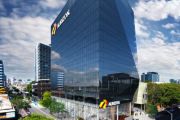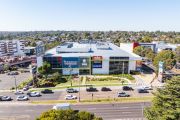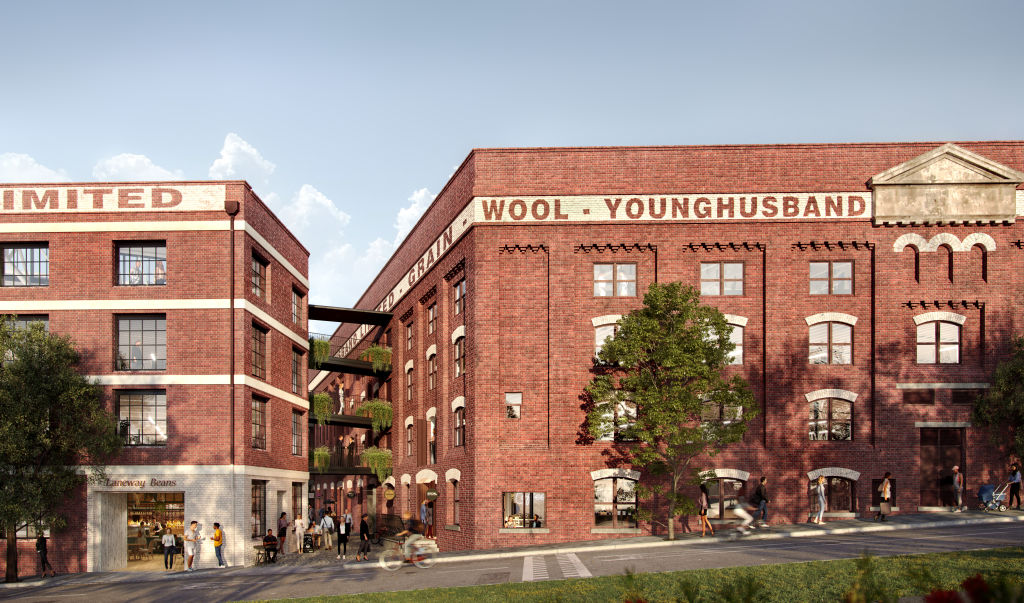
Wool store developments bring industrial areas back to life
Wool was once the golden ticket to prosperity in colonial Australia, and with its rise came the construction of huge new buildings and industrial hubs across the country.
But after the 1950s boom years, the industry began to decline and many of the large wool stores fell into disrepair and dilapidation.
That is, until recent years, when developers with a keen eye swooped in and transformed these spaces into housing and creative commercial spaces.
One of the largest developments of this type, featuring commercial spaces, is the 1.57-hectare Younghusband site in the Melbourne suburb of Kensington, located in the inner north.
The heritage-listed site features a 122-year-old red-brick wool store and an adjoining network of early-20th-century industrial buildings.
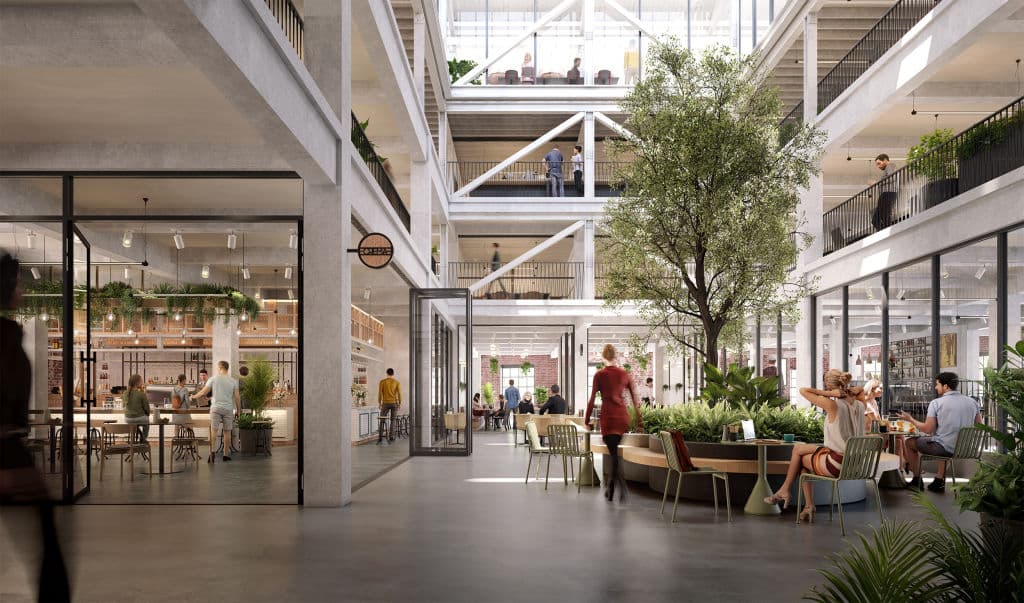
Upon completion, the joint venture between Irongate Group, Built and Ivanhoe Cambridge will comprise 50,000 square metres of commercial office and retail space.
Stage one of the development, which includes the former wool store, is now available for lease.
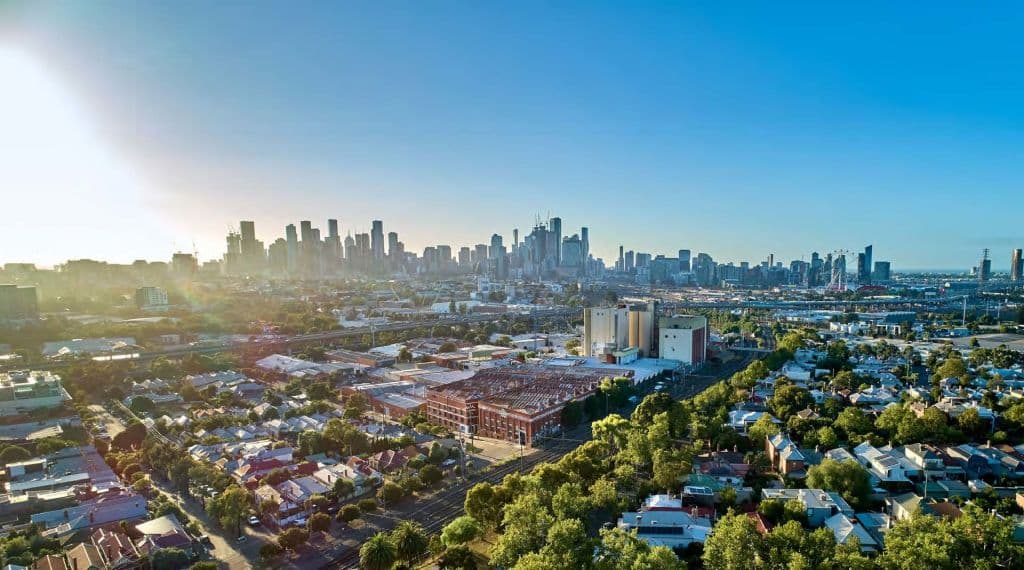
Colliers state chief executive Rob Joyes says suites are available ranging from 250 square metres to whole floors of 2500 square metres, with tenants due to move in early next year.
“We’re in active negotiations for about half of the space,’’ Joyes says.
“It’s local businesses and we are also getting a lot of corporates looking to decentralise and move out of the CBD and into the north, and which are affiliated with the inner north.”
Original features, including bail elevators and wool pulleys, have been incorporated into the new design. Sustainability has been a focus with earth-friendly concrete, full electrification and on-site solar power.
An hour down the highway in the regional city of Geelong – once dubbed the “wool centre of the world”– the locally-based Hamilton Group has a track record developing former industrial sites into commercial hubs from heritage-listed former wool mills to wool stores.
The development of Woolstores @400 Pako, located in the central Geelong suburb of Newtown and within walking distance of the Barwon River, has been transformed into a mixed-use and creative precinct that blends the old and new.
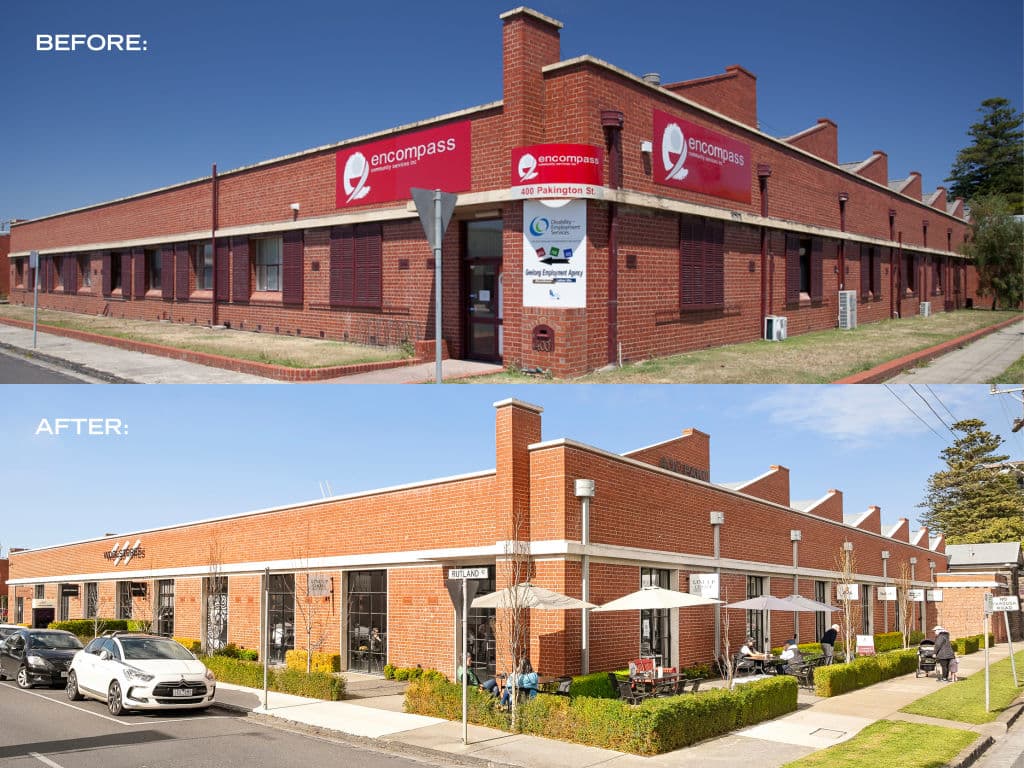
“These buildings have a lot of character and a lot of natural light; they’re enjoyable spaces to work in,’’ says Hamilton Group managing director Cam Hamilton.
“They filled up really quickly – one, it’s the location and two, it’s the design aspect and the ultimate flexibility of the spaces.’’
The current tenants range from a cafe and restaurant-bar to an MP’s office, architectural firm, disability support provider and, in a full circle twist, a company that supplies wool to international brands.
The Hamilton Group now has its sights set on the redevelopment of the former woollen mills across the road into apartments, along with more office and retail spaces.
“About 2009, the council adopted a plan to reinvigorate the (previously industrial) area and move towards more mixed-use spaces,” Hamilton says.
“We jumped on board and decided we could lead the way and spearhead a rejuvenation down there.”
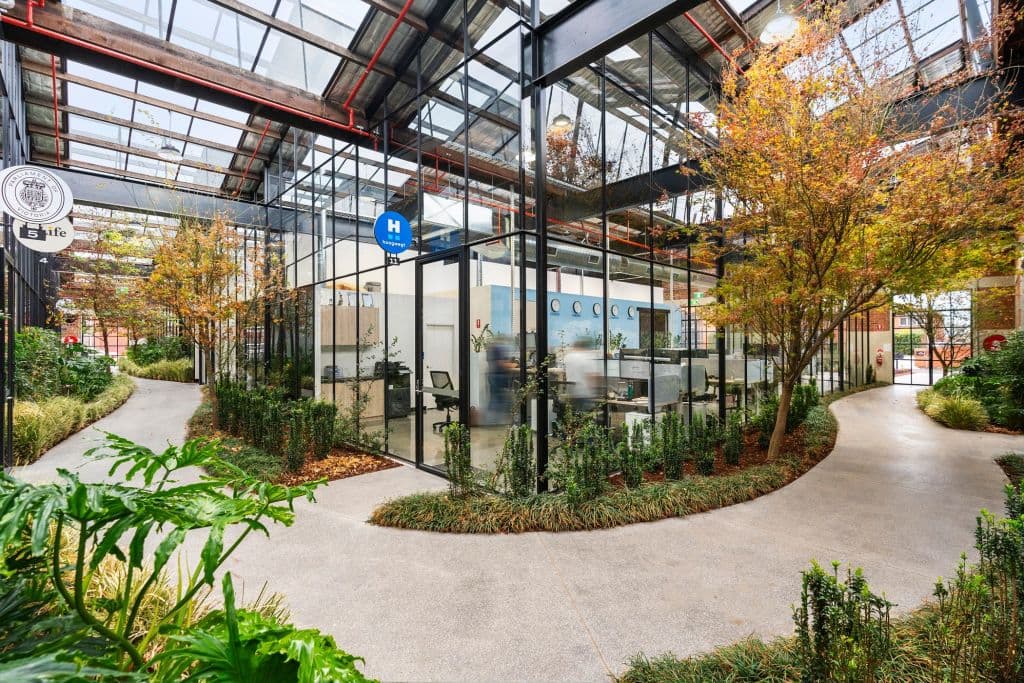
Meanwhile, Sydney was home to a significant number of wool stores in the Inner West suburb of Alexandria.
For Trumen founder and chief executive Sam Allen, the development of wool stores along the Alexandria canal presented an opportunity for urban renewal more than a decade ago and remains one of his proudest projects.
Two out of five wool stores on the original site were too dilapidated to save, but the remaining three on the 39,000-square-metre site were converted into office space, a cafe, a childcare facility, and storage.
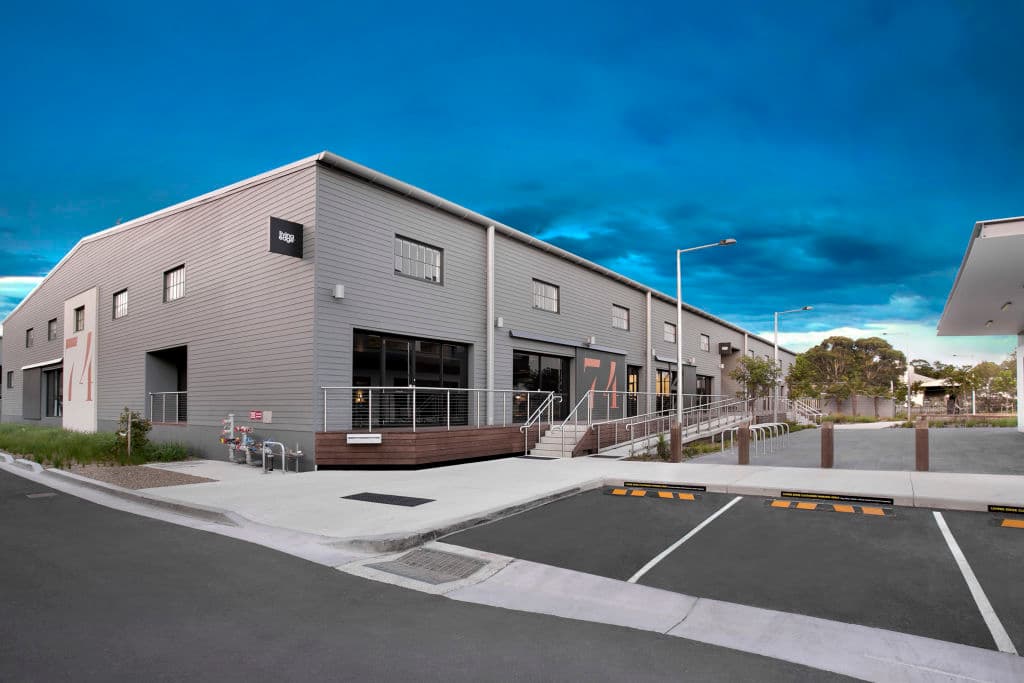
“We just thought it would be an amazing creative office space so we went for it,” Allen says.
“The economy wasn’t that great coming out of the GFC (in 2015), but it was really well received by the market.
“Businesses were looking for something different; they were all leased really well.
“It helped to enhance the area and bring these old buildings back to life.’’

On the other side of the country, in Fremantle, Western Australia, development is underway for the heritage-listed Elders wool store building.
Plans were approved earlier this year for a seven-storey mixed-use development featuring 33 apartments, six townhouses and 7500 square metres of commercial space, along with 1700 square metres for hospitality and retail.
The heritage-listed part of the building will be turned into office space with the design incorporating the original timber beams and columns.

“We saw a big opportunity in retaining it [the wool store] for commercial use because one, it allowed the heritage structure to remain and also, it lent itself to open plan use,’’ development manager Zoe Tsagalis from Human Urban says.
“It also allows for the ground floor to be retained as a civic space so the public can traverse through the building.’’
With Fremantle known for its designated West End heritage area, it’s hoped that this development will help reinvigorate this former industrial part of the city.
“The intention behind our project and having that mixed use is to drive traffic down further [from the West End] to Elders Place and our site.’’
Construction is scheduled to start next year, with the development expected to be completed in early 2028.


